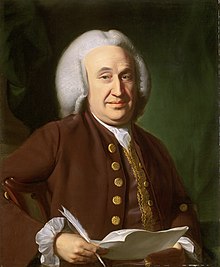“To sell according to the tenor of the Covenant”?
John Andrews’s 22 July 1774 letter to his relative in Philadelphia offers an inside look at why he and some other merchants who generally supported the Whigs ended up signing protests against the Boston committee of correspondence.
According to Andrews, he had “countermanded my orders [from Britain] by the first opportunity after the Port Bill arriv’d, and of consequence acquiesced with a non-importation agreement when propos’d about three or four weeks after.”
But then Andrews heard that merchants in Newport, New York, Philadelphia, and points south hadn’t agreed to such an agreement. He figured that boycott wouldn’t take hold, and he’d lose money if he continued to abstain. So he “embrac’d the first opportunity and re-ordered about one fourth part of such goods as I thought would be most in demand.”
But a month or so later, Andrews saw rural towns signing onto the Solemn League and Covenant, a non-consumption agreement—people were promising not to buy those goods he had ordered. That’s why he felt the covenant “has serv’d rather to create dissentions among ourselves than to answer any valuable purpose.” It would cost him money!
Likewise, Andrews wrote, the merchant Samuel Elliot (shown above in later life) was
Andrews reported that at the 27 June town meeting in Old South
Andrews said he had expected a motion “to suspend ye. Covenant till ye. [Continental] Congress should meet.” He insisted, “We don’t mean to oppose any general measure that maybe adopted by the Congress, but are well dispos’d in the cause of Freedom as any of our opponents, and would equally oppose and detest Tyranny exerciz’d either in England or America.”
Likewise, some towns considering the Solemn League and Covenant decided to take no action until seeing what the Congress would do, or added clauses reserving the leeway to adjust the terms based on that Congress’s recommendations. But that didn’t make merchants like Elliot and Andrews any happier.
TOMORROW: One last detail.
According to Andrews, he had “countermanded my orders [from Britain] by the first opportunity after the Port Bill arriv’d, and of consequence acquiesced with a non-importation agreement when propos’d about three or four weeks after.”
But then Andrews heard that merchants in Newport, New York, Philadelphia, and points south hadn’t agreed to such an agreement. He figured that boycott wouldn’t take hold, and he’d lose money if he continued to abstain. So he “embrac’d the first opportunity and re-ordered about one fourth part of such goods as I thought would be most in demand.”
But a month or so later, Andrews saw rural towns signing onto the Solemn League and Covenant, a non-consumption agreement—people were promising not to buy those goods he had ordered. That’s why he felt the covenant “has serv’d rather to create dissentions among ourselves than to answer any valuable purpose.” It would cost him money!
Likewise, Andrews wrote, the merchant Samuel Elliot (shown above in later life) was
expecting a large quantity of goods which, should they arrive, he can’t possibly qualify himself to sell according to the tenor of the Covenant, having countermanded ’em no other ways than to have ’em shipped, provided your place, with New York. Rhode Island, &c., should have their goods as usual: and from the determination of those places, he has all the reason in the world to expect them.Elliot had committed to non-importation only if the merchants in other ports did the same, and he’d told his contacts in Britain to keep shipping him goods if they didn’t. Therefore, he was now expecting to receive lots of stuff that more and more folks in New England were swearing not to buy.
Andrews reported that at the 27 June town meeting in Old South
Eliot display’d his eloquence in a long speech upon the subject, deliver’d in so masterly a stile and manner as to gain ye. plaudits of perhaps the largest assembly ever conven’d here, by an almost universal clap: wherein he deliver’d his sentiments with that freedom and manliness peculiar only to himself.However, the formal vote at that town meeting was shaped by another set of gentlemen: those who had signed the complimentary addresses to departing governor Thomas Hutchinson and incoming governor Thomas Gage. They were upset by “hearing the letters read that were sent to your place [Philadelphia] and New York (the latter in particular) in regard to that part of their conduct.” Resenting that criticism, those merchants and professional men demanded a vote “to censure and dismiss ye. Committee.” And they lost big.
Andrews said he had expected a motion “to suspend ye. Covenant till ye. [Continental] Congress should meet.” He insisted, “We don’t mean to oppose any general measure that maybe adopted by the Congress, but are well dispos’d in the cause of Freedom as any of our opponents, and would equally oppose and detest Tyranny exerciz’d either in England or America.”
Likewise, some towns considering the Solemn League and Covenant decided to take no action until seeing what the Congress would do, or added clauses reserving the leeway to adjust the terms based on that Congress’s recommendations. But that didn’t make merchants like Elliot and Andrews any happier.
TOMORROW: One last detail.



